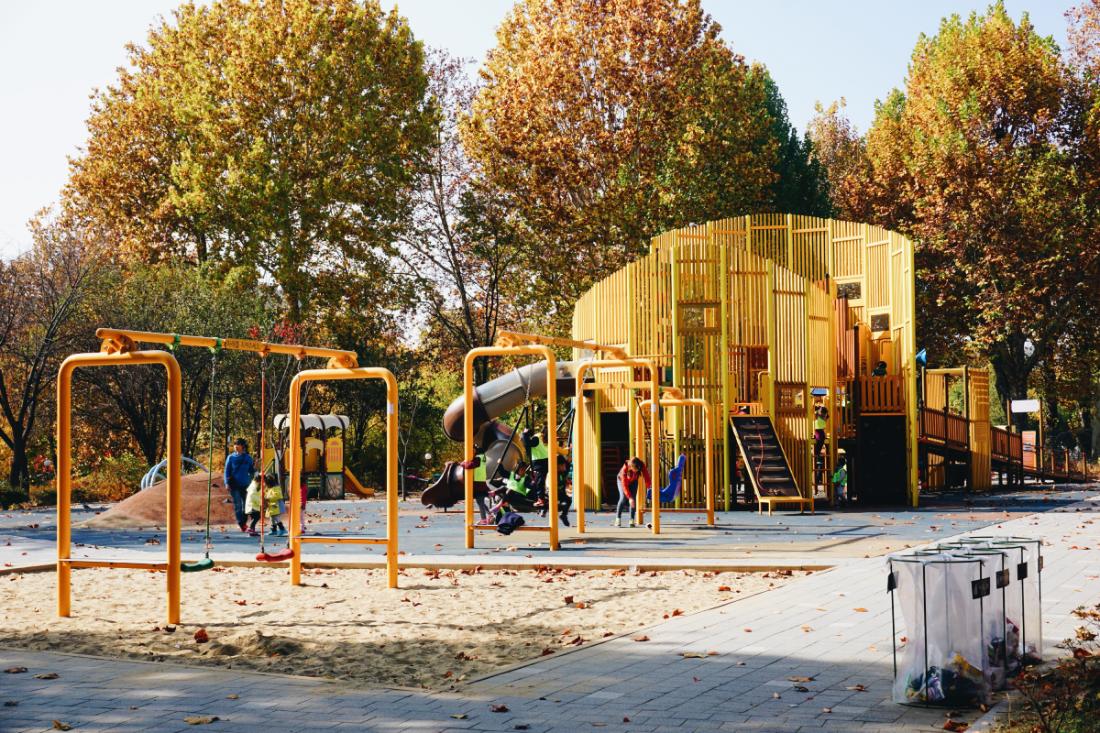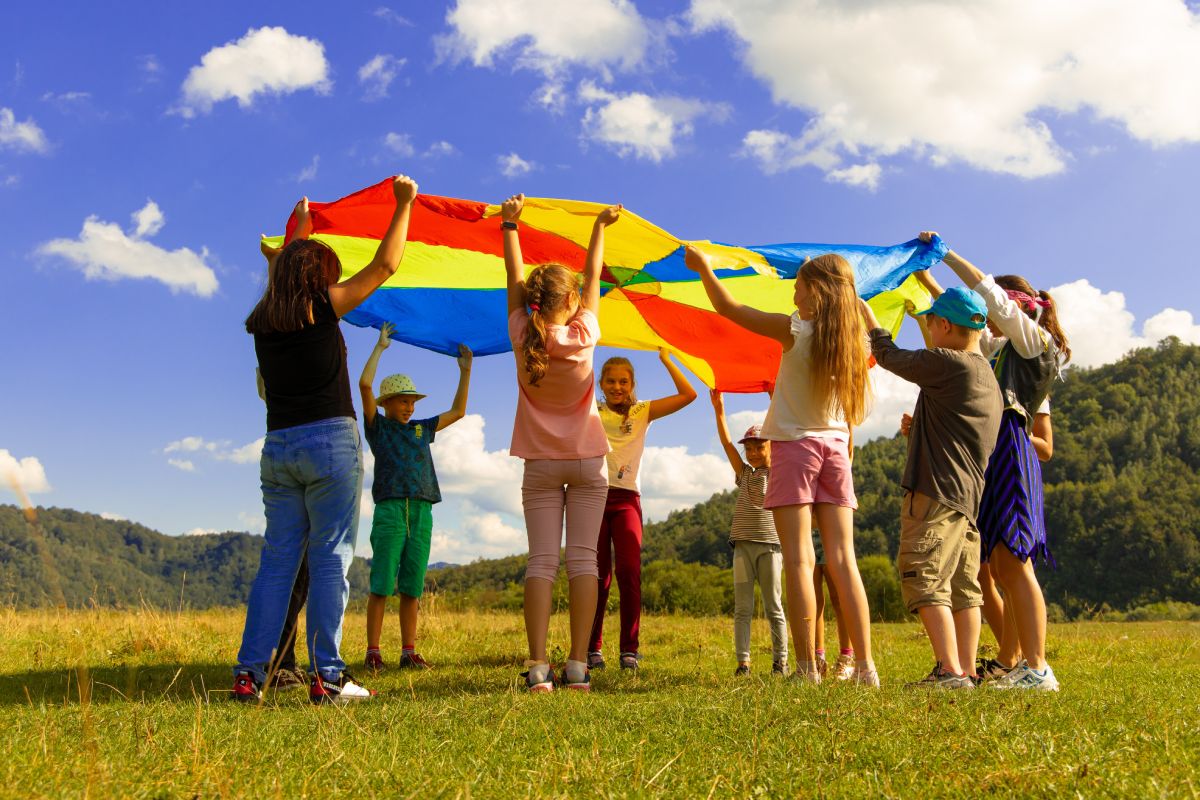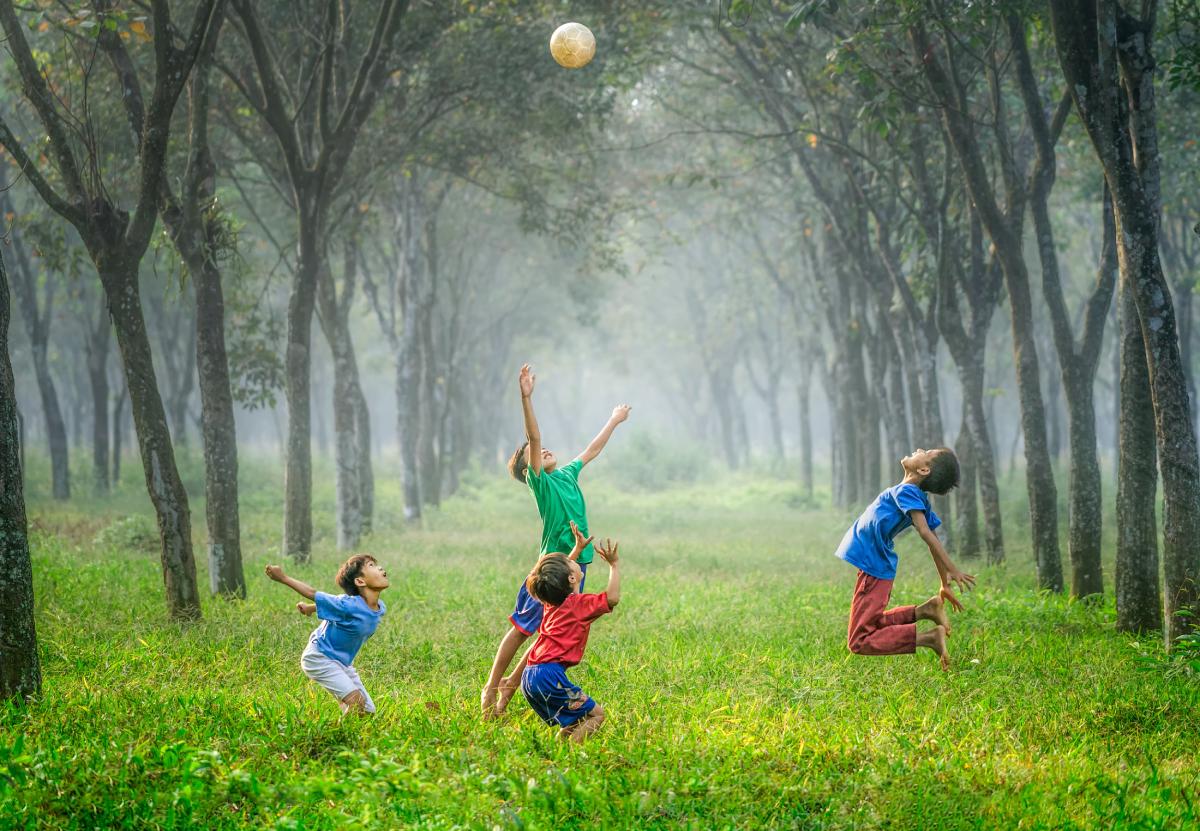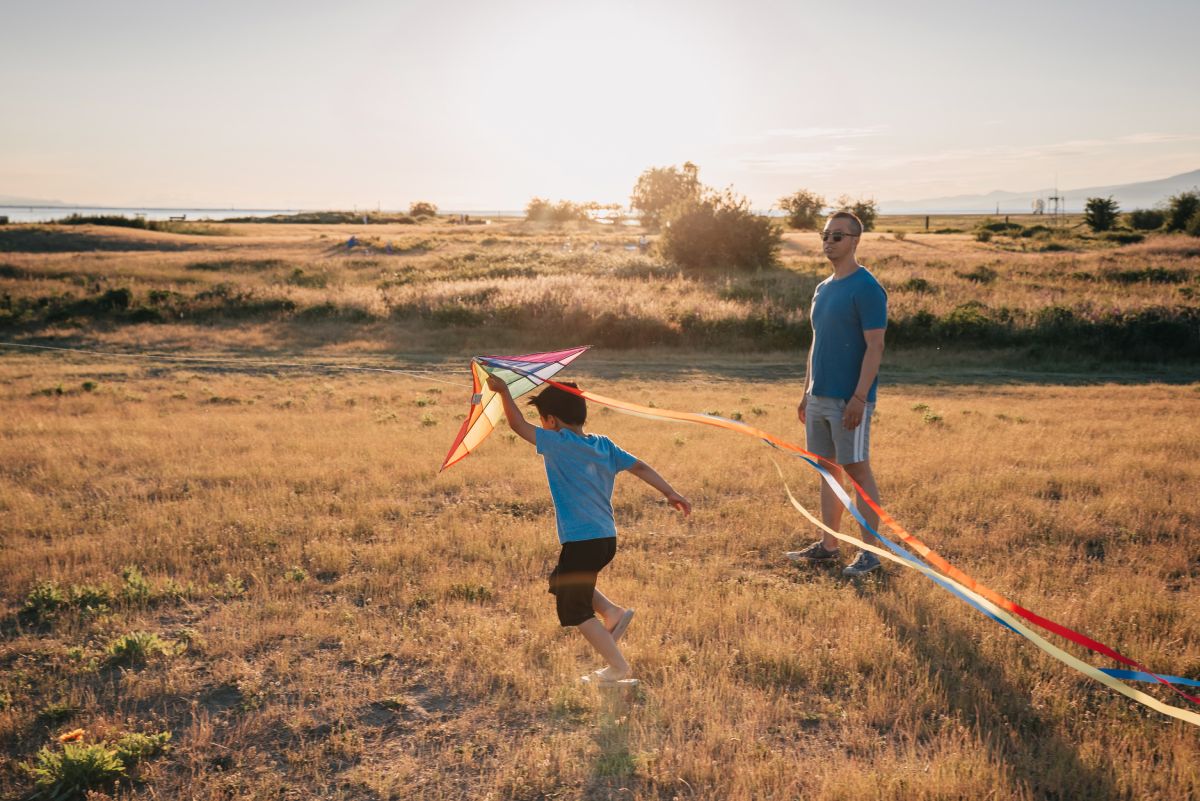Introduction
The world of a child brims with curiosity, exploration, and learning. Among the diverse avenues that facilitate this journey, outdoor play holds a unique and significant role. This blog post is a call to recognize and understand the crucial importance of outdoor play in the overall development of a child.
Overview of the Importance of Outdoor Play
Outdoor play is more than just a way to let off steam; it’s an integral part of children’s well-being. It offers an array of benefits, from fostering physical health and development to stimulating creativity, social skills, and emotional resilience. Furthermore, it provides a sensory-rich environment for children to learn and engage with the world in their unique, natural way.
Brief Explanation of Decreased Outdoor Playtime in Recent Years
Despite the well-documented benefits of outdoor play, a concerning trend has been surfacing in recent years. The advent of technology and digital media, coupled with safety concerns and increasingly structured lifestyles, have led to children spending more time indoors and less time engaging in unstructured play outdoors. This shift has potential repercussions for children’s physical and mental health and their ability to interact with the world around them.
Summary of the Blog Post
In this blog post, we will dive into the crucial role of outdoor play in children’s lives. We will discuss the multitude of benefits it offers, from boosting physical health to nurturing creativity, promoting social interaction, enhancing sensory skills, and fostering emotional well-being. We will further highlight the reasons for the decline in outdoor playtime and suggest practical ways to encourage and facilitate more outdoor play opportunities. Finally, we will touch on the potential future if we can successfully steer the present generation back to the great outdoors.
The essence of the conversation is simple: outdoor play is not a luxury, it’s a necessity. And together, we can rediscover and promote its importance in the lives of our children. Buckle up, as we navigate through the fascinating world of outdoor play and its immense potential to shape the future of our children.
Understanding the Importance of Outdoor Play
The playground is a child’s first classroom, where they learn through experiences. Outdoor play is an essential component of this learning process, a precious tool that not only enhances the physical well-being of children but also shapes their mental and emotional health.

Essential Skills Developed Through Outdoor Play
Outdoor play offers children a rich and varying environment where they can explore, experiment, and engage in imaginative play. This kind of unstructured play fosters essential life skills such as problem-solving, creativity, and resilience. It stimulates curiosity and encourages children to interact with their surroundings, teaching them about the world and their place in it.
Moreover, children learn important social skills in the playground. They learn to share, negotiate, cooperate, and develop empathy as they interact with peers. Outdoor play also enhances fine and gross motor skills as children run, climb, swing, or build a sandcastle.
Positive Impact on Physical Health
The physical benefits of outdoor play are evident and substantial. Outdoor activities usually involve movement - running, jumping, throwing, catching, pulling, and lifting. This regular physical activity helps children build strong bones and muscles, improves cardiovascular health, and helps maintain a healthy weight.
Exposure to sunlight provides children with vitamin D, essential for bone health and immune system function. Furthermore, outdoor play can improve children’s sensory skills, such as vision and spatial awareness, as they navigate different terrains and environments.
Enhancing Mental and Emotional Well-being
Outdoor play has significant benefits for children’s mental and emotional well-being. Interacting with nature and the outdoor environment can have a calming effect, reducing stress and anxiety. It provides a space where children can express themselves freely, build self-confidence, and cultivate a sense of independence.
Moreover, the challenges they face and overcome during outdoor play help in building resilience, promoting a growth mindset, and fostering a positive attitude. Such experiences can support children in managing their emotions and developing coping strategies, ultimately contributing to their mental resilience.
Outdoor play, thus, is a holistic learning platform. It incorporates physical, mental, emotional, and social dimensions, making it a potent contributor to children’s comprehensive development. In the following sections, we’ll discuss the reasons for the decline in outdoor play and ways we can encourage more children to step outside and play.
The Impact of Technology on Playtime
In the digital age, the traditional dynamics of play have undergone significant changes. Technology, while a useful tool for learning and connectivity, has influenced the way children play, leading to less time spent outdoors and more time in front of screens.

Rise of Digital Devices and Screen Time
With the influx of smartphones, tablets, and other digital devices, screen time has increased exponentially for children. Animated movies, video games, and a plethora of apps are designed with engaging graphics and intuitive user interfaces to hold children’s attention. This easy and constant accessibility of digital entertainment has made it a go-to for many children during their leisure time.
Moreover, the internet’s vast educational resources have transformed digital devices into primary learning tools. This shift to digital learning platforms, further exacerbated by recent remote learning practices, has significantly increased children’s screen time.
Effect on Physical Activity Levels and Social Skills
Increased screen time often means decreased physical activity. Spending hours seated in front of a device may result in less time spent on active play, potentially leading to health problems like obesity, weak muscular development, or poor posture.
Furthermore, excessive screen time can affect children’s social skills. Interactions in a virtual setting do not provide the same nuanced learning experiences that face-to-face interactions do, which may limit the development of essential social skills.
Importance of Balancing Screen Time and Outdoor Play
While it’s undeniable that technology offers significant benefits for children’s education and entertainment, balance is key. Ensuring children get ample time for physical play outdoors is crucial for their overall development.
Outdoor play and interaction with nature offer unique opportunities for learning, creativity, and social development that can’t be replicated on a digital platform. These activities allow children to stretch their muscles, breathe fresh air, and learn to appreciate the natural world, which is just as important as learning how to navigate the digital one.
As we move further into the digital age, striking a balance between screen time and outdoor play will become increasingly important. By providing opportunities for outdoor play, we can ensure that our children grow up healthy, happy, and well-rounded in an ever-evolving technological world.
Benefits of Outdoor Play for Physical Health
The significance of outdoor play extends far beyond just entertainment. It plays a pivotal role in promoting a child’s physical health, developing motor skills, and laying the foundation for an active lifestyle. Moreover, outdoor play is a natural and effective way to combat the rising rates of childhood obesity.

Promotion of Active Lifestyle
Outdoor play naturally encourages children to be more active. When children run, jump, climb, or engage in other forms of active play, they are exercising without even realizing it. This instills an inherent inclination towards physical activity from a young age, promoting an active lifestyle that can continue into adulthood.
Furthermore, outdoor play often involves elements of exploration and adventure, sparking a child’s curiosity and creating positive associations with physical activity. By making exercise fun, children are more likely to maintain an active lifestyle as they grow older.
Combatting Childhood Obesity
Physical activity is crucial in maintaining a healthy body weight, and outdoor play is an excellent way to encourage this. By providing an engaging environment for physical activity, outdoor play helps burn calories and keep children’s energy balance in check.
The opportunity to run and play freely in outdoor spaces helps prevent excessive weight gain, making it an effective strategy to combat the rising prevalence of childhood obesity. Moreover, outdoor play often involves social interaction, which can enhance the enjoyment of physical activity, further encouraging kids to engage in these activities.
Development of Motor Skills
Outdoor play is critical for the development of gross and fine motor skills in children. Activities like climbing a tree, riding a bike, or throwing a ball require coordination, balance, and strength. These activities provide opportunities for children to develop these skills, which are essential for their overall physical development.
In addition, the varied and unpredictable nature of outdoor environments offers a broader range of physical challenges than indoor play. Navigating these challenges can enhance a child’s agility, depth perception, and spatial awareness.
In conclusion, the benefits of outdoor play for physical health are immense. It not only promotes an active lifestyle and combats obesity but also plays a significant role in motor skills development. By encouraging outdoor play, we are investing in the overall physical health and well-being of our children.
Cognitive and Educational Advantages of Outdoor Play
Outdoor play is a rich source of cognitive and educational benefits. It enhances creativity, fosters problem-solving skills, promotes attention span and focus, and positively impacts academic performance. Indeed, outdoor play isn’t just play; it’s a vital component of a child’s cognitive and intellectual development.

Enhancing Creativity and Problem-Solving Skills
Outdoor play offers children an open-ended environment where they can let their imaginations run wild. The unstructured nature of outdoor play fosters creativity as children invent games, navigate play structures, or simply find inventive uses for sticks, leaves, and other natural objects. This creativity extends to problem-solving skills as well. When children encounter obstacles in their play, like figuring out how to cross a stream or climb a tree, they must develop and implement solutions, which enhances their problem-solving abilities.
Promoting Attention Span and Focus
Outdoor play can also promote a child’s attention span and focus. The varied and stimulating environment of the outdoors requires children to pay attention to their surroundings, improving their ability to concentrate. Furthermore, the physical activity associated with outdoor play has been linked to improvements in attention span, memory, and focus, crucial skills for academic success.
Impact on Academic Performance
There is growing evidence that outdoor play can positively impact academic performance. Studies suggest that children who spend more time playing outdoors perform better in reading, writing, and math compared to those who spend less time outdoors. The cognitive skills enhanced by outdoor play, such as creativity, problem-solving, focus, and attention span, are essential for academic learning.
Moreover, outdoor play often involves real-world interactions and experiences, which can make academic concepts more concrete and understandable for children. For example, a child might learn about gravity by rolling down a hill or about biology by observing animals and plants.
In conclusion, the cognitive and educational advantages of outdoor play are significant and wide-ranging. From enhancing creativity and problem-solving skills to promoting attention span and positively impacting academic performance, outdoor play is an invaluable part of a child’s cognitive development. It goes beyond just physical health and taps into the intellectual growth and learning potential of a child, making it an integral part of childhood.
Social and Emotional Benefits of Outdoor Play
Outdoor play isn’t just good for children’s physical health and cognitive development; it also offers numerous social and emotional benefits. As children navigate the social dynamics of play, they build crucial social skills and learn the importance of teamwork. They also gain confidence and independence through their outdoor adventures, while the natural environment works its magic to reduce stress and improve mood.

Fostering Social Skills and Teamwork
The outdoor play environment often requires children to interact, communicate, negotiate, and cooperate with others. They engage in social play, learning to share, take turns, and solve disputes. These interactions foster social skills that are essential for building healthy relationships in the future.
Outdoor play also encourages teamwork. Whether it’s working together to build a sandcastle or coordinating roles in a game, children learn the value of collaboration and the importance of contributing to a shared goal. This early understanding of teamwork is valuable for personal and professional success later in life.
Building Confidence and Independence
As children navigate outdoor play, they also build confidence and independence. The outdoor environment offers countless opportunities for children to overcome challenges, whether it’s climbing a tree or catching a bug. Each challenge conquered can boost their confidence and encourage them to tackle new challenges.
Moreover, outdoor play often provides children with a degree of freedom not available indoors. This freedom allows them to make choices, take risks, and learn from their mistakes, fostering a sense of independence. These experiences help children learn to trust their abilities and develop resilience, which is vital for emotional health.
Reducing Stress and Improving Mood
The benefits of outdoor play extend to mental health as well. The natural environment is a known stress reducer for all ages. Exposure to sunlight helps maintain healthy levels of the mood-regulating hormone serotonin, and physical activity releases endorphins, the body’s natural mood lifters.
Moreover, being in nature offers children a sense of calm and relaxation. The sights, sounds, and smells of nature — from the vibrant colors of plants to the soothing sound of a running stream — provide a sensory experience that can help children unwind and reduce feelings of stress or anxiety.
In conclusion, outdoor play is a valuable tool for promoting social and emotional health in children. From fostering social skills and teamwork to building confidence and independence, to reducing stress and improving mood, the social and emotional benefits of outdoor play are manifold. These benefits underline the importance of encouraging children to step outside and engage in play, setting them up for a future of well-rounded health and wellness.
Overcoming Obstacles to Outdoor Play
As much as we recognize the importance of outdoor play for children, certain obstacles might limit their access to it. These include safety concerns, time constraints, and weather challenges. However, with careful planning and creativity, we can overcome these barriers to ensure our children reap the abundant benefits of playing outside.

Addressing Safety Concerns
One of the main concerns parents often have about outdoor play is safety. While it’s natural to worry about accidents, stranger danger, and traffic, we should balance these concerns with the benefits of outdoor play.
One way to mitigate safety risks is to create safe outdoor environments. These might include secured backyard play areas, local parks, or supervised playgrounds. Child-friendly community initiatives, like traffic calming measures and safe routes to parks, can also enhance outdoor safety. Encouraging children to play in groups and teaching them about safety rules and stranger danger can further ensure their security.
Managing Time Constraints
Another obstacle is the lack of time, often due to packed schedules with academics, structured activities, and screen time. However, it’s essential to carve out regular slots for unstructured outdoor play.
Parents can encourage outdoor play by integrating it into daily routines, such as a post-dinner family walk or weekend park visits. Schools can also play a significant role by ensuring recess remains a part of the school day and organizing outdoor education activities. Finding ways to make outdoor play a priority, amidst the hustle and bustle of modern life, can make a huge difference in children’s health and well-being.
Tackling Weather Challenges
Weather conditions can sometimes limit outdoor play, especially during harsh winters or intense summer heat. While it’s crucial to ensure children’s safety and comfort, a bit of rain or snow shouldn’t deter outdoor activities.
Children can be taught to dress appropriately for different weather conditions. Rainy days can be perfect for splashing in puddles, while snowy days can offer opportunities for building snowmen or sledding. For extremely hot or cold days, plan outdoor activities during the cooler morning or evening hours. Additionally, always ensure that children are adequately hydrated and protected from the sun.
Ultimately, while there are obstacles to outdoor play, they are not insurmountable. By addressing safety concerns, managing time constraints, and tackling weather challenges, we can create opportunities for our children to play, explore, and learn in the great outdoors. After all, the benefits of outdoor play make it worth our while to overcome these hurdles.
Strategies to Encourage Outdoor Play
As we strive to overcome the challenges to outdoor play, it’s also vital to cultivate an environment that encourages children to spend time outside. This can be done by creating engaging outdoor spaces, involving children in outdoor activities and sports, and limiting screen time to encourage unstructured playtime.

Creating Engaging Outdoor Spaces
To attract children outdoors, the environment should be fun, stimulating, and inviting. Turning your backyard into a mini-playground with a swing, slide, or sandbox can work wonders. Planting a garden with your kids not only makes for an engaging outdoor activity but also fosters a connection with nature.
For those living in apartments, balcony gardening can be a fun alternative. Public parks, beaches, and trails also provide ample opportunities for exploration and physical activity. Having access to such spaces can significantly increase the amount of time children spend outside, away from the confines of four walls.
Involving Children in Outdoor Activities and Sports
Children are more likely to enjoy the outdoors when they’re engaged in activities they love. This might be a sport, like soccer or basketball, or maybe it’s a hobby like bird watching or kite flying.
Organized sports can be a great way to get children outside regularly, but don’t forget about the importance of unstructured play. Simple activities like throwing a Frisbee, jumping rope, or even playing tag can be a great source of exercise and fun. Encourage a variety of activities to keep things interesting and broaden their range of skills.
Limiting Screen Time and Encouraging Unstructured Playtime
In our digital age, screen time can significantly eat into outdoor play. It’s important to create healthy screen time boundaries. The American Academy of Pediatrics recommends no more than one hour of high-quality screen time per day for children aged 2 to 5, and consistent limits for older kids.
Equally important is promoting unstructured playtime. Unlike organized sports or games, unstructured play has no set rules or objectives. It allows children to use their creativity, develop problem-solving skills, and learn to self-entertain. Whether they’re building a fort or inventing a new game, unstructured play can be a great way to stimulate imagination and creativity.
Encouraging children to play outside isn’t always an easy task, but with thoughtful strategies and persistence, we can make it a regular part of their lives. The lifelong benefits they’ll gain - from physical health to social skills and a love for nature - make every effort worthwhile.
The Role of Schools and Communities
While parents bear a significant responsibility in encouraging outdoor play, schools and communities play an equally important role. Schools can integrate outdoor play into their curricula, while communities can offer resources and advocate for safe and accessible playgrounds. All these elements combined create a supportive environment for outdoor play, ensuring its myriad benefits reach as many children as possible.

Importance of Outdoor Play in School Curriculum
Schools are fundamental in shaping a child’s routine, and incorporating outdoor play into the school day can reinforce its importance. A well-planned recess can offer a much-needed break from the structure of the classroom, giving students the opportunity to relax, refresh, and engage in physical activity.
Research has shown that students who participate in regular outdoor play perform better academically. This is because outdoor play can enhance creativity, problem-solving skills, attention span, and overall cognitive functioning. Additionally, outdoor learning experiences, such as field trips and nature studies, can further deepen children’s connection with the environment, fostering an appreciation that books alone may not instill.
Community Resources for Outdoor Play
Communities can foster outdoor play by providing resources such as parks, playgrounds, sports facilities, and after-school programs. These spaces and activities offer safe, accessible environments for children to engage in outdoor play.
Community events, such as sports tournaments, nature walks, or outdoor fairs, also offer opportunities for outdoor play and social interaction. Local organizations and clubs can promote outdoor activities, from youth soccer leagues to bird-watching groups. By providing these resources, communities can make outdoor play an easy and attractive option for families.
Advocacy for Safe and Accessible Playgrounds
Playgrounds are an essential part of any community. However, not all playgrounds are created equal. Advocacy for safe, accessible, and well-maintained playgrounds is crucial to encourage outdoor play. Playgrounds should cater to all children, including those with disabilities.
Inclusion is vital in designing playgrounds, ensuring all children can benefit from outdoor play. Efforts to ensure playground safety, such as cushioned surfaces and well-maintained equipment, can alleviate parental concerns and promote usage. Regular maintenance is also crucial to ensure the longevity and safety of these spaces.
Encouraging outdoor play is a collective effort that requires the participation of parents, schools, and communities. As we work together to increase opportunities for outdoor play, we contribute to healthier, happier, and more balanced children ready to face the challenges of tomorrow.
Conclusion
As we conclude this exploration of outdoor play’s importance, it’s clear that the benefits are far-reaching and multifaceted. From bolstering physical health to nurturing cognitive development, enhancing social skills, and promoting emotional well-being, the significance of outdoor play in a child’s life cannot be underestimated.

Recap of Key Points
Throughout this blog post, we’ve delved into the many aspects of outdoor play. We’ve acknowledged how crucial it is in fostering essential skills and combatting the sedentary lifestyle often brought about by an over-reliance on digital devices.
We’ve discussed the beneficial impact on children’s physical health, including promoting an active lifestyle and developing motor skills. We’ve also acknowledged its cognitive and educational advantages, like enhancing creativity, problem-solving skills, and potentially improving academic performance.
Importance of Encouraging Outdoor Play
Outdoor play provides an avenue for children to explore their surroundings, engage with their peers, and challenge their physical limits. It’s a platform where they can develop essential skills, and it serves as a natural stress reliever.
It’s important to note that encouraging outdoor play doesn’t necessarily mean structured activities or organized sports. Unstructured playtime, where children can let their imagination run wild, is just as crucial. Outdoor play, in all its forms, serves as a cornerstone in children’s development, contributing to their overall well-being.
Final Thoughts and Call to Action for Parents and Educators
The modern world has posed some challenges to outdoor play. Yet, these obstacles are not insurmountable. By recognizing the importance of outdoor play and being proactive, we can find ways to integrate it into our children’s daily lives.
For parents, it’s about creating a balance between screen time and playtime, making outdoor play a fun and engaging activity, and being involved where possible. For educators, it’s about recognizing the value of outdoor play and integrating it into school curricula. For communities, it’s about providing safe, accessible, and engaging spaces for children to play.
Let us all embrace the outdoors, encourage our children to explore, play, and learn from the world around them. After all, they’re not just playing; they’re building the foundation for a healthy, balanced, and fulfilling life.



